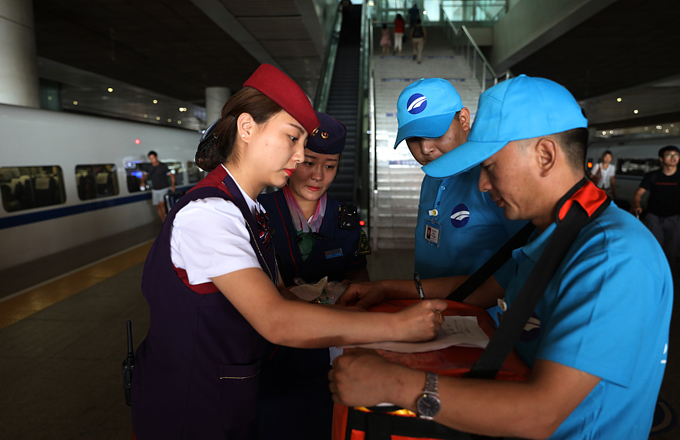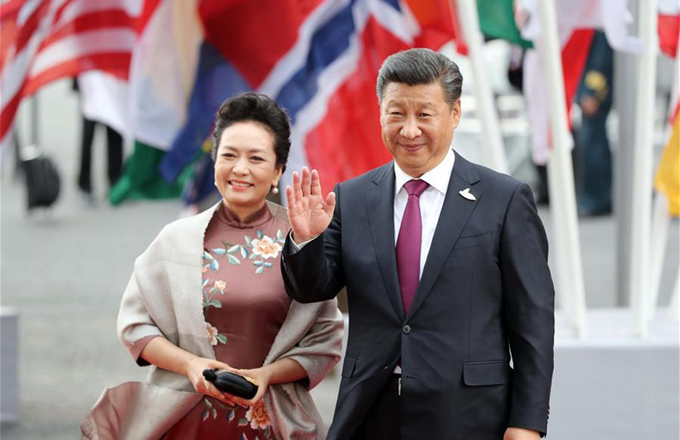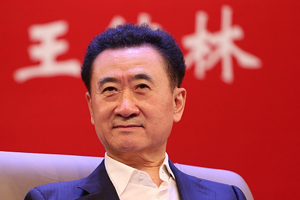A land of opportunity and challenges
The grand opening of Huawei's flagship handset showroom in downtown Yangon in early May evoked images of the frenzied crowds of Chinese people who line up in front of the Apple store in Sanlitun, Beijing, to buy the latest iPhone.
| ?
 |
| Qin Zhongwei's Yangon journal |
The showroom selling the Chinese telecom giant's latest mobile phones and IT products was supposed to open at 10 am, but interested shoppers began to fill the open square in front of the flagship store as early as 7 am. The second the door was opened, the crowds, like floodwaters, spilled into every corner of the two-story building.
It was a sensational scene. Hundreds of men and women, young and old, even some students and monks, were shouting at the top of their lungs, asking the prices of their favorite phone products. Evidently, the Chinese brand with the trendy look and the affordable price has a big market here.
Perspiring heavily and trapped inside the store, unable to move, I, for the first time in my life, felt some sense of the national pride brought by a Chinese brand.
Apple's "hungry marketing" strategy of reducing production to increase demand seems unnecessary here because cheap handsets and better telecommunication services are in such great demand.
It took 10 years for Huawei to become Myanmar's most popular handset brand, with a market share of more than 60 percent. But in a country of 60 million, of which fewer than 10 percent own mobile phones, there are still abundant opportunities for foreign telecommunication companies and other industries.
In contrast with Huawei's success, a different picture emerges of some other Chinese investment projects while talking to insiders or reading local newspapers during my time in Myanmar. Some Chinese enterprises are "under fire", some projects backed by China have been suspended, and some local NGOs and media have warned of the environmental threat posed by Chinese investments. Protests have also taken place.
A copper mine project run by a Chinese company near Mandalay, the country's second-largest city, was suspended for months as a result of local protests over an alleged lack of transparency, disputes over land compensation and environmental threats. As the company manger said, it is more than a commercial project now. It has a political dimension.
To paraphrase the opening line of Charles Dickens' A Tale of Two Cities, it is the best of times, but it can be the worst of times for some Chinese companies in Myanmar.
They face unprecedented opportunities because the country is launching its ambitious development plan after decades of Western sanctions. But there are equal challenges in a society that is becoming more diversified, featuring different voices and claims from various interest groups.
In the past, Myanmar citizens were not well informed about how they could benefit from some of the projects in which China was investing. Now, more and more Chinese companies are learning the lessons of the past and improving their information-sharing through different channels. This is what I found after visiting the copper mine project.
| ?
 |
|
Long lines formed outside Huawei’s fi rst fl agship showroom in Yangon. ZHANG WEI / CHINA DAILY |
A recent report of an investigation into the copper mine project, released by the Myanmar side, suggested it should continue. China and Myanmar have both indicated a willingness to continue their economic cooperation in the knowledge of the benefits it will bring to both sides.
The popularity of Huawei products in Myanmar also demonstrates that the resentment of Chinese investment noted by some scholars may have been exaggerated.
There will surely be more, rather than less, foreign investment injected into this booming market in the near future, and as Myanmar's largest foreign investor, China will not be absent from the process.
Some of the hard lessons that Chinese enterprises have learned will help build the foundation on which they can try to build.




























